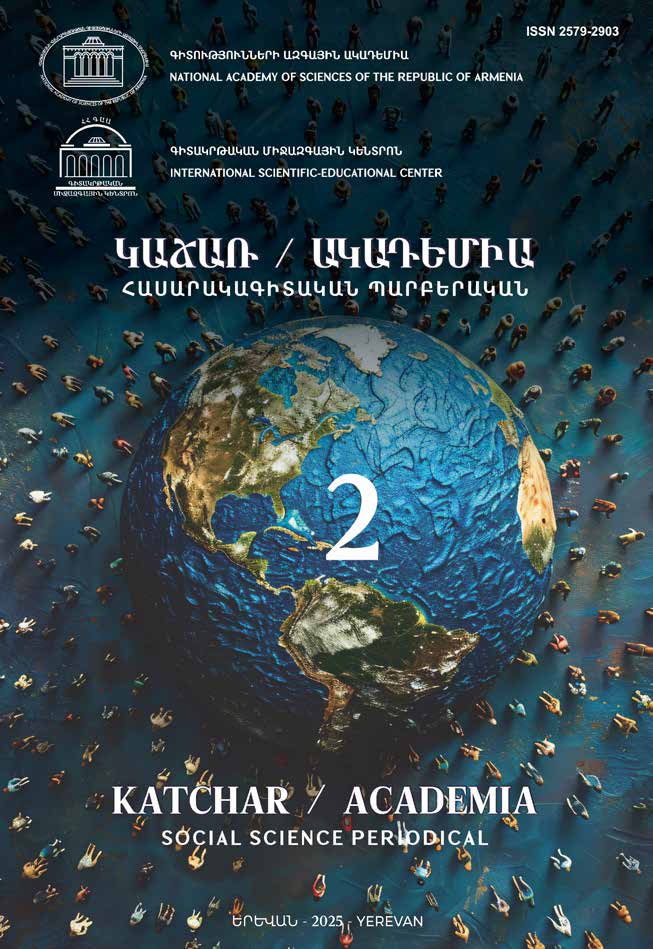EMPOWERING DISPLACED YOUTH THROUGH SOFT AND PROFESSIONAL SKILLS: A MIXED-METHODS EVALUATION OF A POST-CONFLICT DEVELOPMENT PROJECT IN ARMENIA
DOI:
https://doi.org/10.54503/2579-2903-2025.2-100Keywords:
Displaced youth, soft skills, professional skills, post-conflict education, Armenia, resilience, employability, transformative learning, social integration, youth empowerment, training evaluation, psychosocial support, sustainable developmentAbstract
This article discusses the design, implementation, and outcomes of the targeted educational intervention based on the project “Soft and Professional Skills Development for the Displaced Armenians,” which was designed to empower conflict-affected young people in Armenia after the war. After the 2020 Nagorno-Karabakh conflict, large numbers of young Armenians were forced out of education, socially marginalised, and cast out of most career paths, factors that are rarely considered in emergency response strategies. To address this gap, the International Scientific-Educational Center of the National Academy of Sciences of Armenia implemented a project aimed at enhancing the soft and professional skills of participants, including communication, critical thinking, resume writing, time management, etc.
The proposed study is relevant because displaced populations, in particular the youth, urgently need scalable, skills-based educational models, as the long-term integration and resilience of such populations rely on not only psychosocial support but also employability training. The program was developed based on the Human Capital Theory, Social Integration Theory, Transformative Learning, and Resilience Framework and tested using a qualitative feedback analysis and a mixed-methods approach that consisted of quantitative pre- and post-assessment.
The results showed that the participants experienced impressive gains in self-confidence, employability skills and social interaction. Measurements of quantitative data showed a significant improvement of skills in key areas, whereas discussion of the qualitative parts illustrated the emotional and community-building aspect of the training. Furthermore, the project stimulated the development of follow-up activities, which were initiated by project participants themselves and provided evidence of sustainability and local ownership. These findings highlight the significance of learner-centred education in post-conflict settings and the need to implement soft skills-focused responses as part of national recovery plans and policies regarding displaced youth.

Downloads
Published
How to Cite
Issue
Section
License
Copyright (c) 2025 KATCHAR / ACADEMIA. SOCIAL SCIENCE PERIODICAL

This work is licensed under a Creative Commons Attribution-NonCommercial-NoDerivatives 4.0 International License.



